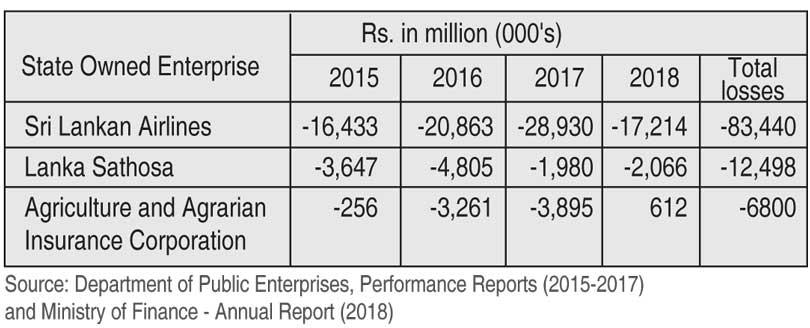Reply To:
Name - Reply Comment

Advocata Institute yesterday commended President Maithripala Sirisena’s directive to shut down the loss-making State-owned handloom enterprise
Lanka Salu Sala.
While commending, the Colombo-based free market think tank said it expects the official gazette enacting this statement.
Salu Sala was once the only State textile trading enterprise in the country. As the only provider of textile during the closed economy, Salu Sala received
heavy protection.
In 2011, the first Committee of Public Enterprises (COPE) report revealed that for the year 2009/2010, Lanka Salu Sala Ltd. had made a loss of Rs.30 million. The reason for this loss, as identified by the report, was due to salaries paid to staff that were sent on compulsory leave during the restructuring process of the organisation.
Advocata said they were unable to track the financials of Lanka Salu Sala thereafter, as there had been no annual reports or performance reports published and made available to the public.
Advocata Institute said it strongly believes that the State should have no role in running business enterprises using taxpayer money, particularly in industries with enough private investment and competition.
“Advocata encourages the government to look at other ‘white elephant’ State owned enterprises (SOEs) as well and divest and exit industries that serves no strategic purpose,” a statement by the think tank noted.
Out of 527 SOEs identified by Advocata’s 2018 ‘State of State Enterprises’ report, only 54 were classified as being ‘strategic’ by the government.
Whilst the policy debate in Sri Lanka on SOEs has focused on privatisation, many of Sri Lanka’s SOEs have no commercial purpose, riddled with corruption and mismanagement, and in the core justification of existence is not attractive to private investors looking for profit-making ventures.
Advocata has been campaigning to consider the government to exit enterprises of this nature and release the valuable resources they occupy into more productive sectors of the economy, while awarding fair compensation to public sector employees of these enterprises.
In the case of Salu Sala, the Treasury has allocated Rs. 340 million to pay compensation for 217 employees under a voluntary retirement scheme.
Advocata noted that this could be a model the government should consider adopting in cases where paying a compensation is more economically-viable than continuing to keep a loss-making enterprise afloat.
Lanka Salu Sala is not the only SOE that is a fiscal strain on Sri Lanka’s economy. Non strategic SOEs like SriLankan Airlines, Lanka Sathosa and Agriculture and Agrarian Insurance Corporation are in need of immediate reform.